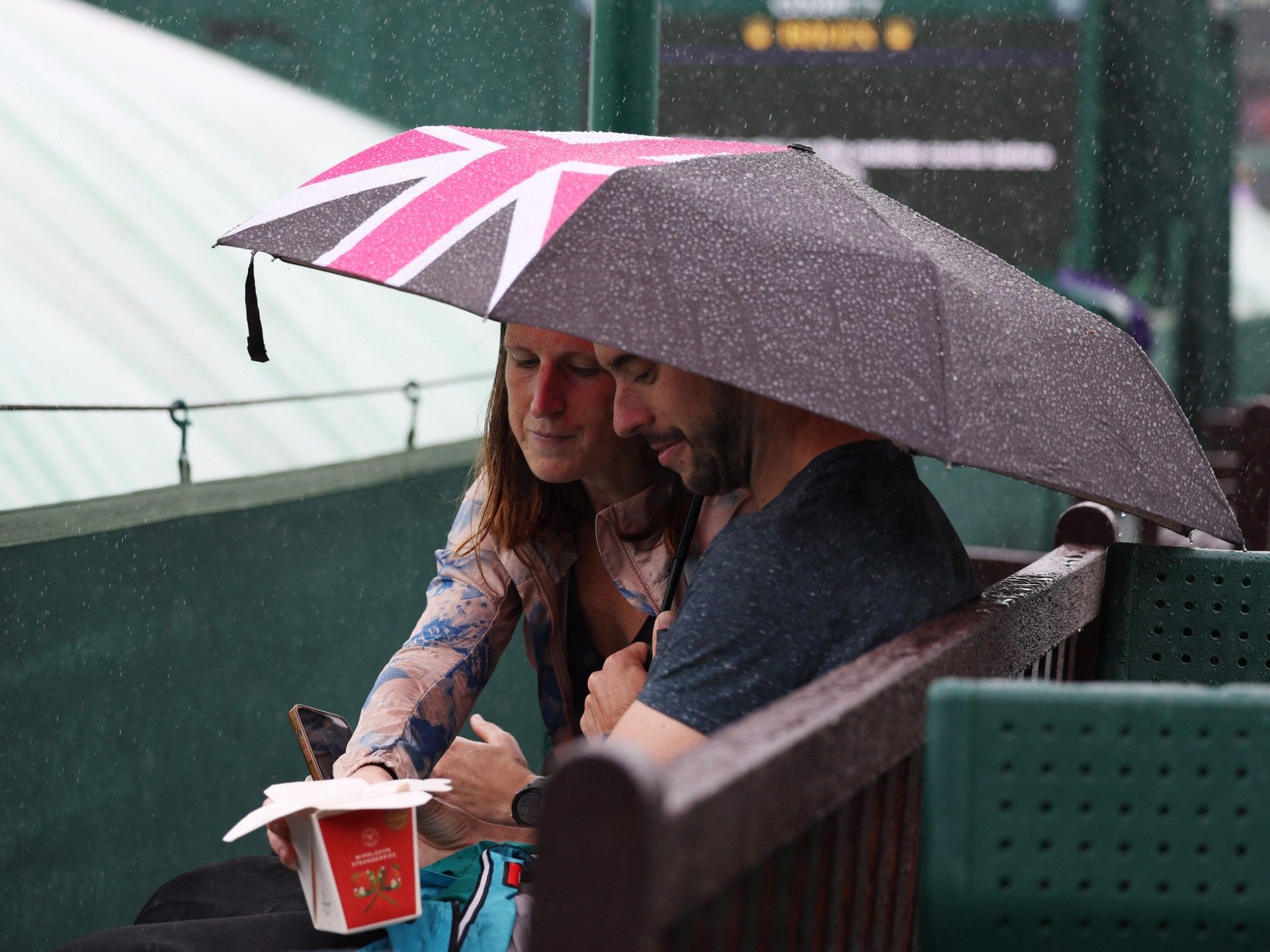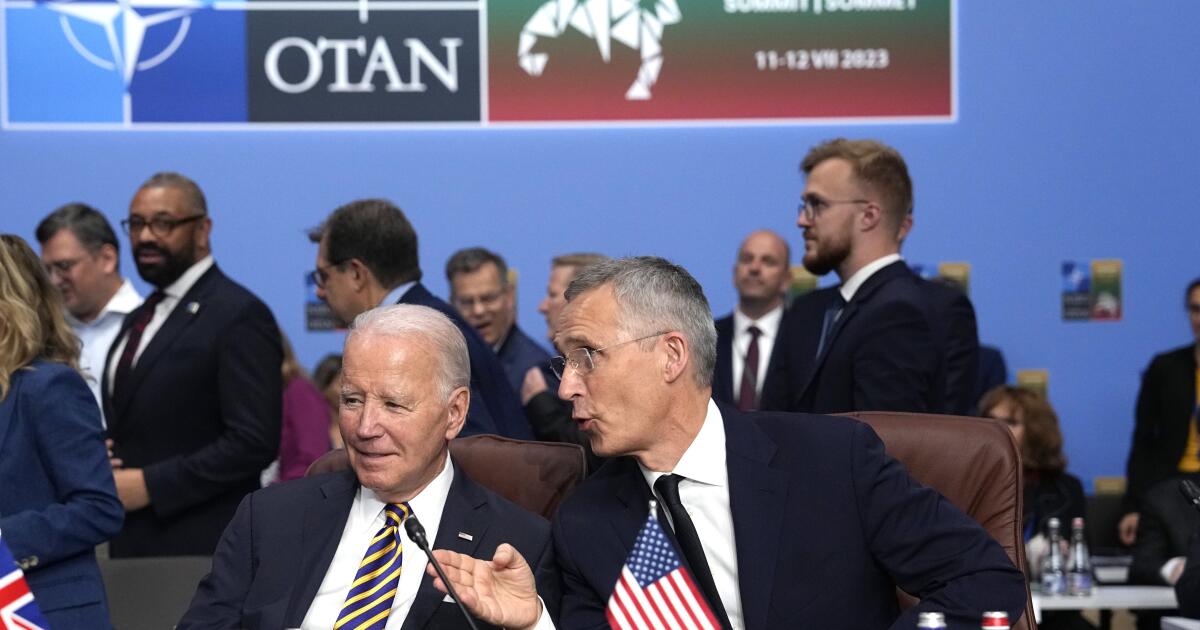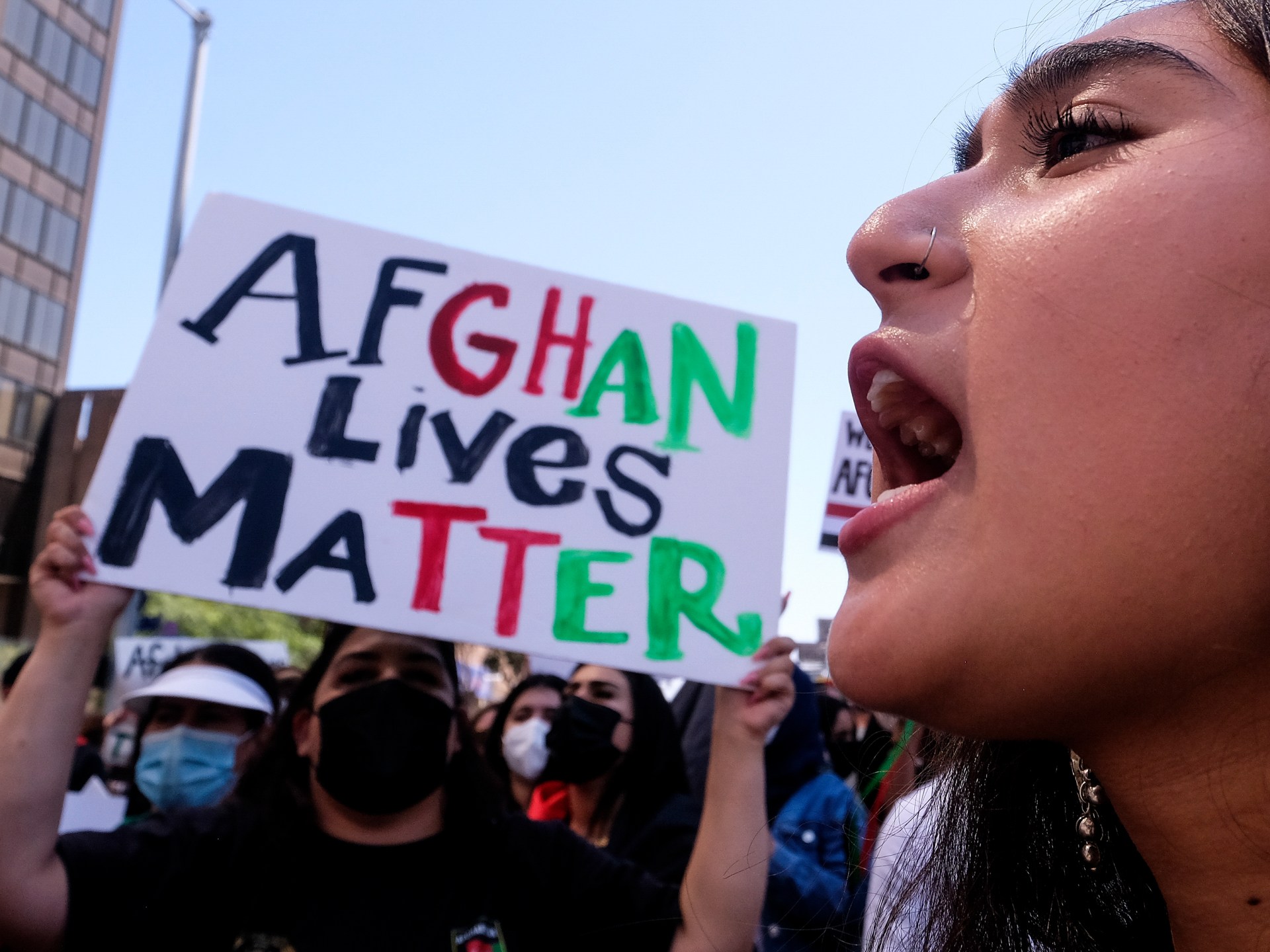REPORTER'S NOTEBOOK
Pro-Palestine independent candidates and Farage's far-right party each win four seats as Labour scores a landslide victory.
“At least it’s not the conservatives,” says my neighbor as she shelters from the rain with an umbrella.
That's the feeling felt by many in the UK on Friday after the Labour Party's landslide election victory, or perhaps more accurately, the Conservatives' landslide defeat.
Experts say voter turnout could be the lowest in more than 20 years, a sign that many have abandoned the political system.
The economy is struggling, the National Health Service is overwhelmed and scandal-hit Conservatives have undermined trust in politicians.
They oversaw Brexit after a deeply divisive referendum campaign during which a Labour MP, Jo Cox, was shot and stabbed to death. They lost support for their handling of the COVID-19 pandemic when several Conservatives, including then-Prime Minister Boris Johnson, flouted the country's lockdown rules.
And during the election campaign, outgoing Prime Minister Rishi Sunak upset many when he skipped an international commemoration event for the 80th anniversary of the Normandy landings, known as D-Day, to give a television interview. To make matters worse, Conservative Party figures are suspected of placing bets on the date of the general election.
Many of those who voted for Labour in Thursday’s election voted for its simple slogan of “change” rather than for centre-left Labour leader Keir Starmer, a 61-year-old former lawyer with just 10 years of political experience.
Jonathan Tonge, a professor of politics at the University of Liverpool, prophetically predicted an “apathetic collapse” earlier this week.
While the outcome may be clear, the future political landscape is far from predictable.
Shortly after the results of an exit poll were announced on Thursday evening after voting had finished, Rory Stewart, a former Conservative cabinet minister, told Channel 4 that Britain was entering an era of more radical politics.
Far-right start-up Reform UK has gained four seats.
All parties have been campaigning for six weeks, but Reform's momentum has moved forward at breakneck speed after populist firebrand Nigel Farage announced his candidacy just a month ago – a shock about-face as he had previously said he would not stand. After seven failed attempts to become an MP, he is now finally heading to the UK Parliament to represent Clacton-on-Sea.
The Green Party also won four seats, a symmetry that did not go unnoticed by commentators.
“The Greens have won four seats. The reformists have also won four seats. Yet one party has had 90 percent more mainstream media coverage than the other. Ask yourself why,” Evolve Politics, a British left-wing news and current affairs website, posted on X.
Four was also a key number for the Labour Party, which lost four seats to independent candidates who ran on a pro-Palestinian ticket. Other independent candidates came close to achieving the same number.
“This is for the people of Gaza,” said Shockat Adam, the newly elected MP for Leicester South, after being announced the winner.
He defeated Labour's Jonathan Ashworth by just 979 votes.
British-Palestinian candidate Leanne Mohamed eventually lost Ilford North by a narrow margin (528 votes) to Labour's Wes Streeting.
Andrew Feinstein, a Jewish anti-Zionist former South African politician who was trying to unseat Starmer from his London seat of Holborn and St Pancras, also made a dent. He came second behind Starmer, whose vote share since 2019 fell by 17 percent.
Starmer's priority will be to stabilise the economy. He will also be keen to restore confidence in the political system and demonstrate to the public that Labour is a united party for all.
“At least it’s not the Tories,” is the mantra for now. In the coming months, Starmer may fear that people will say: “Better the devil you know.”












